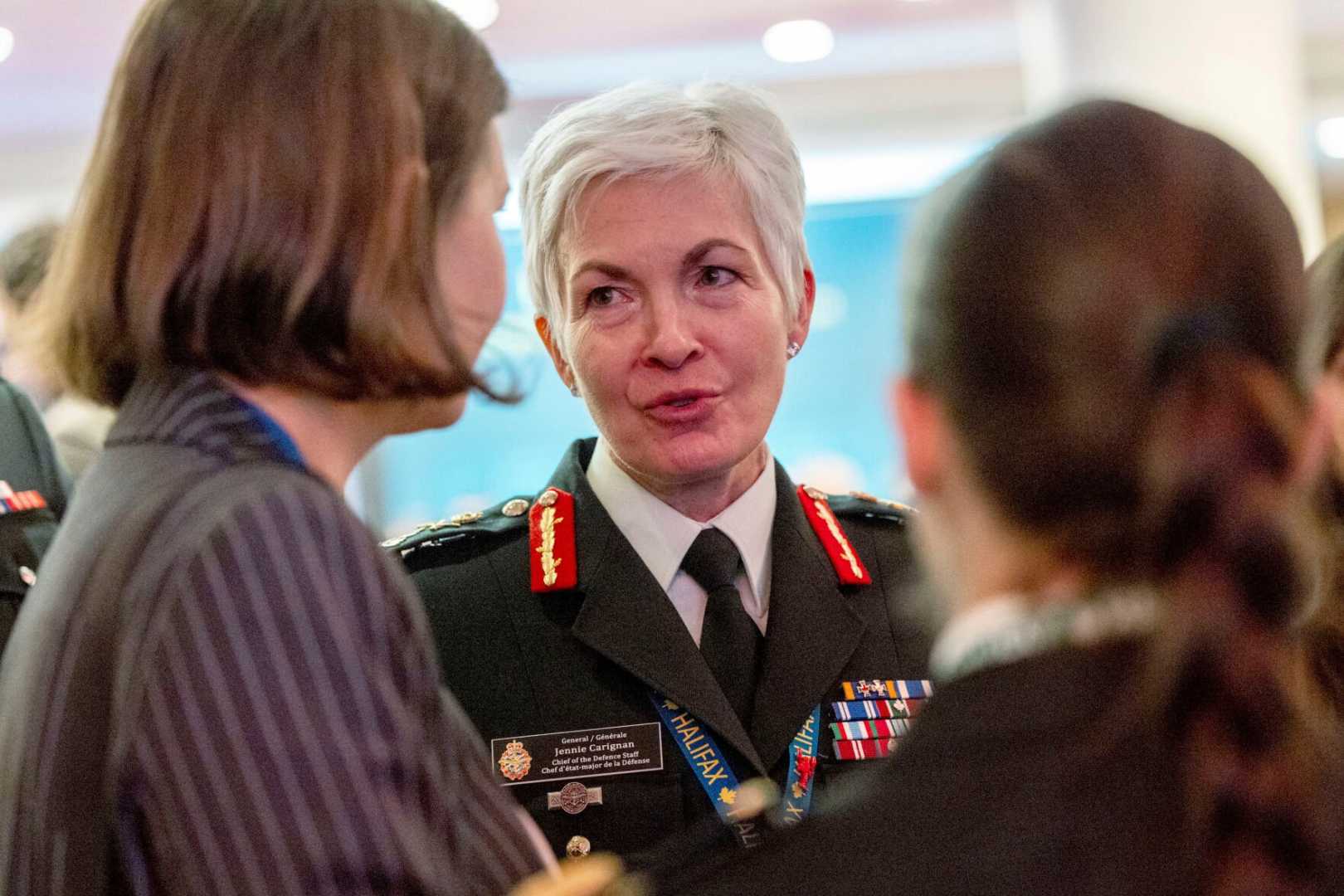News
Canada’s Top Military Commander, Gen. Jennie Carignan, Defends Women’s Role in Combat Against US Senator’s Comments

Gen. Jennie Carignan, Canada‘s Chief of the Defence Staff and the first woman to command the armed forces of any Group of 20 or Group of Seven country, has strongly defended the role of women in combat against comments made by US Senator Jim Risch. During the Halifax International Security Forum on Saturday, Carignan responded to Risch’s remarks that questioned the effectiveness and practicality of women serving in combat units.
Risch, the ranking member of the US Senate Foreign Relations Committee, had suggested that the “jury’s still out” on how to deal with the “unique situations” created by having women in combat. He was referring to comments made by Pete Hegseth, President-elect Donald Trump‘s nominee for defense secretary, who believes men and women should not serve together in combat units. Carignan, with 39 years of experience as a combat arms officer, including deployments to Iraq, Afghanistan, Bosnia, and Syria, vehemently disagreed with these views.
“I wouldn’t want anyone to leave this forum with this idea that women are a distraction to defense and national security,” Carignan said, receiving a standing ovation from the audience. She emphasized that women have been participating in combat for hundreds of years and should be recognized for their contributions to their countries’ defense.
Carignan also highlighted her own career milestones, including being the first woman to command a combat unit in the Canadian military and her current role as chief of professional conduct and culture, a position created in response to a sexual misconduct scandal in 2021. Her appointment as Canada’s first female defense chief was made by Prime Minister Justin Trudeau‘s government earlier this year.
Beyond the debate on women in combat, Carignan is also focused on other critical issues such as boosting recruitment for the Canadian Armed Forces, which is currently short of its authorized target strength, and enhancing security and defense in the Arctic due to increasing activities by Russia and China.












